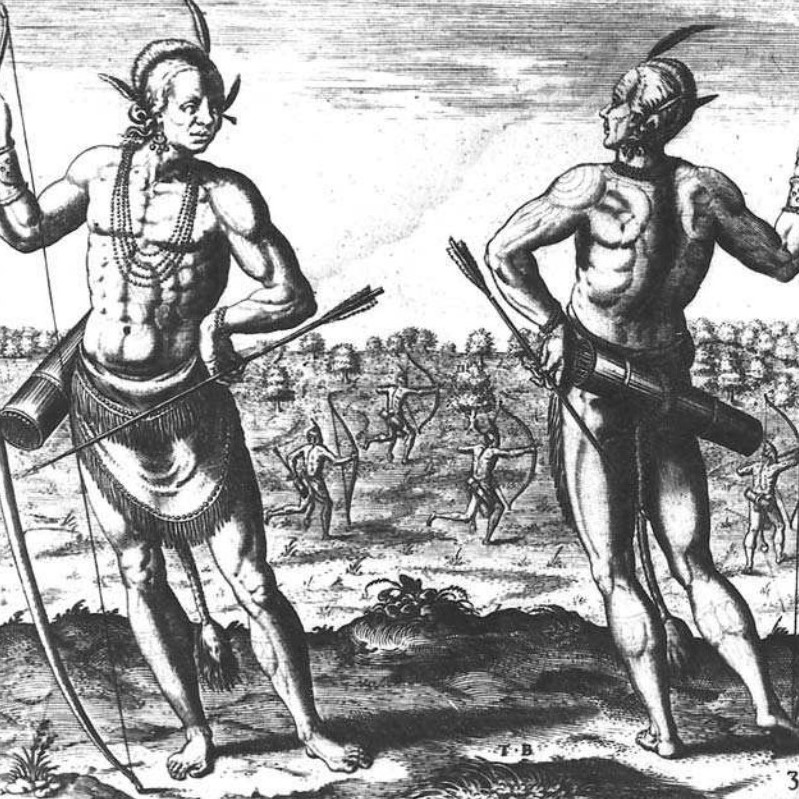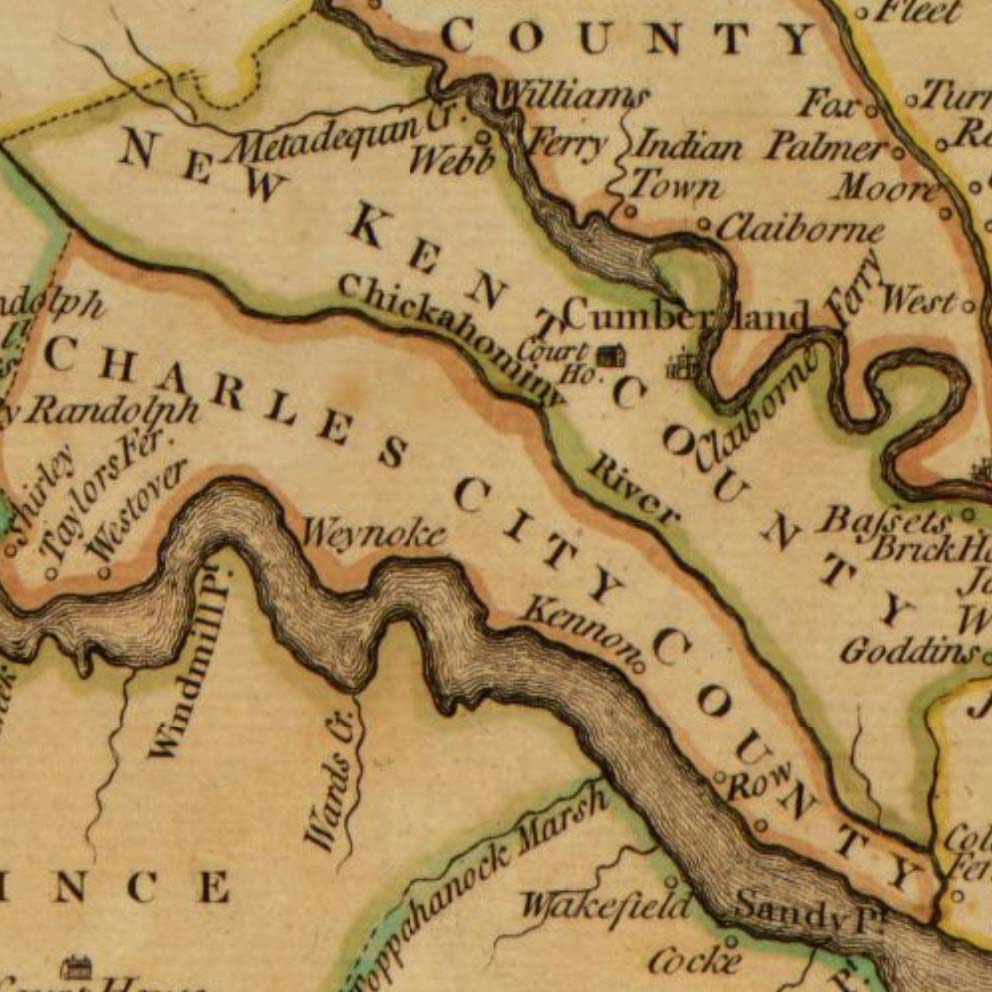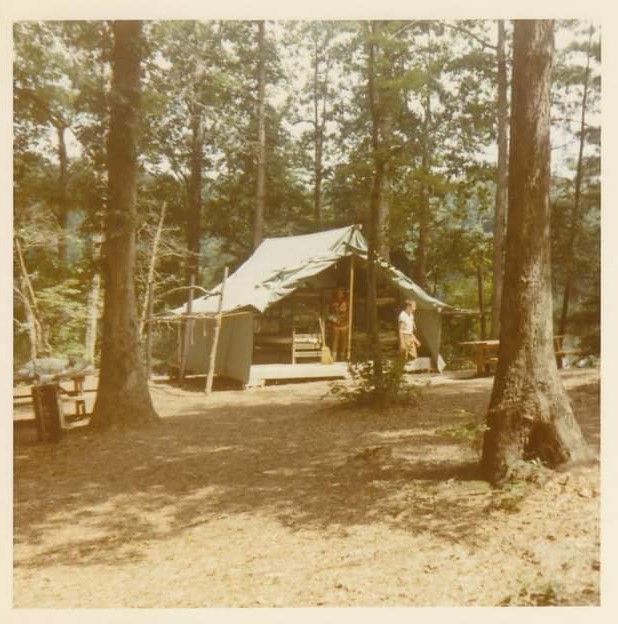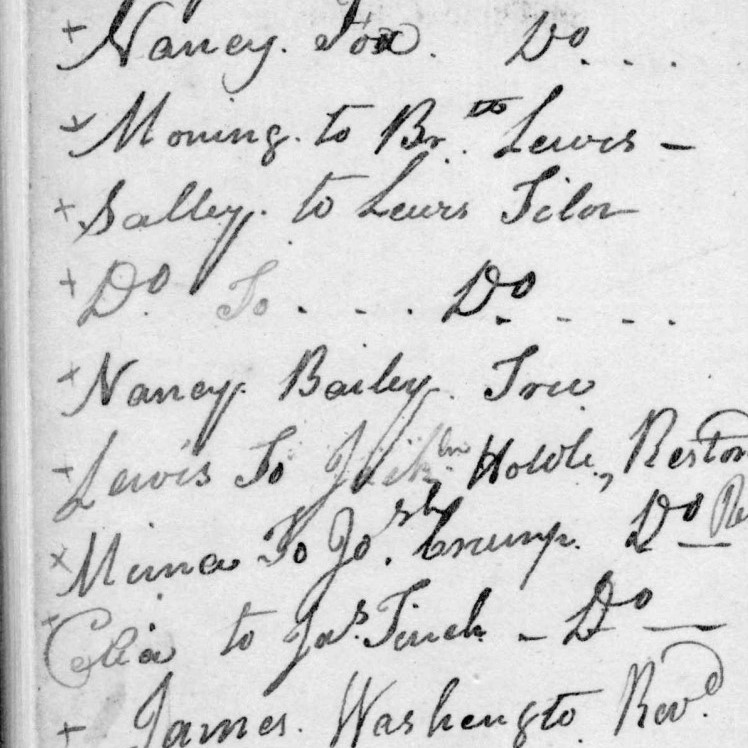Site History
In May 2023, an educational sign was installed in front of the Walter L. Rice Education Building that illustrates the history of the land Rice Rivers Center sits upon. The sign spans pre-1607 to modern times.
Amelia V. Johnson of Girl Scout Troop 5184 from Henrico, Virginia, developed the sign as part of her Girl Scout Gold Award project. Throughout 2022, she worked with the Richard M. Bowman Center for Local History in Charles City County to research published records, historical documents, deeds, wills and land patents. Johnson gained access to the private and public collections at local churches, universities, and the Virginia Department of Historical Resources. She interviewed experts in local history and archeology to compile a comprehensive and surprising view of the site of which the center sits on.
Johnson's journey brought her to the census records of the Emmaus Baptist Church in Providence Ford, Virginia, as well as deeds and wills of land owners. Records show enslaved people lived and worked on or near property, including 11 who are traced directly to the site.
The educational sign that sits on the bluff of the James River at Rice Rivers Center is divided into three parts: Pre-1607, 1607 - 1850s, and Civil War - Modern Day. The information on the educational sign included additional historical data that was not added to due space limitation, and can be viewed below.
Pre-1607 Weyanoke Tribe
The Weyanoke tribe, part of the Powhatan Chiefdom, lived at a bend in the James River very near the Rice Rivers Center.


1607 - 1850s Colonial Period
Property owners during this period include The Virginia Land Company and two families with Presidential roots: Benjamin Harrison and Samuel Tyler.


Civil War - Modern Day
In July 1862, Union General George McClellan and his 80,000 - 100,000 troops camped near Rice Rivers Center, and the earthworks constructed on-site are still visible.
During the mid-1900s, a YMCA camp, Camp Weyanoke (pictured), operated where Rice Rivers Center now stands.


Enslaved Persons Names
During Johnson's research she uncovered, though wills and deed, previously unknown names of enslaved persons who were part of the history of the center's land.

